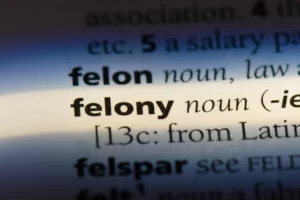Frequently Asked Questions
In Georgia, the most important difference between juvenile court and adult court is that juvenile court cases are treated as civil matters known as “juvenile delinquencies.” Even when a “felony” charge is specified a child cannot be “convicted” of committing a felony in juvenile court. Children found to have committed the act they are charged with are “adjudicated delinquent,” which legally means that they are in need of treatment or rehabilitation.
A key difference between juvenile court and adult court is the speed of the judicial process. Due to youth being a fleeting time in our lives, juvenile court prioritizes handling matters expediently. In Georgia, cases must go to trial within 30 days of the filing of a juvenile petition for a child not in detention, and as soon as 10 days if a child is in detention. Adult court can take months or years to get to cases.
Your child will not have a criminal record, but will have a juvenile record of the offenses that they were found to have committed. In juvenile court, children are not “convicted,” but rather are “adjudicated delinquent.” If a question arises as to whether your child has been convicted of a felony, the legal answer is NO. However, if an employer, school, or other agency asks whether your child has ever been adjudicated delinquent then the answer would be yes – unless your child’s record has been sealed.
To seal a juvenile record you need to return to the juvenile court in which your child was adjudicated delinquent two years after the conclusion of your child’s case.The court will run a check to verify that your child does not have any other cases in other jurisdictions. If not, the court can decide to seal your child’s juvenile record at this time. After a record has been sealed, the legal answer to any questions about whether your child has ever been adjudicated delinquent is NO.
In Georgia, if your child is charged with a misdemeanor the maximum punishment your child could face is a two-year probation period under the supervision of your county’s juvenile probation office.
In Georgia, the maximum punishment your child (aged 13-16) could face when charged with a felony is a two year commitment to the Department of Juvenile Justice (DJJ), meaning that custody of your child would transfer to DJJ for two years. During this time DJJ would make decisions about your child’s placement (whether they would be at home, at a treatment facility, or even at a detention center). Also, DJJ would not need to appear before a judge to make significant changes to your child’s probation plan.
In Georgia, the State can seek to incarcerate your child (aged 13-16) for up to 18 months for a class B designated felony, and up to 60 months for a class A designated felony. Your child could also be placed under the supervision of the Department of Juvenile Justice (DJJ) for up to 36 months for class B and up to 60 months for class A designated felonies. DJJ can also seek to extend a child’s time under DJJ supervision until their 21st birthday. Designated felonies are the most serious charges a child can face in juvenile court.
There are certain offenses known colloquially in Georgia as SB440 or State Bill 440 offenses. SB440 created 7 offenses – murder, armed robbery with a firearm, rape, voluntary manslaughter, aggravated sexual battery, aggravated sodomy, and aggravated child molestation – where original jurisdiction is vested with the superior (adult) court. If your child is charged with one of these offenses and is at least 13 years of age, then the case will automatically be sent to superior court where your child would be facing the prospect of adult sentencing.
Parents are shocked to learn that the answer in Georgia is YES – but it may be inadmissible depending on the circumstances. Each case is different and this is not intended as legal advice, but it is legally permissible for the police to question your child without your presence. Whether that interrogation is permitted to be introduced at trial depends on a variety of factors that the court considers. An experienced children’s defense attorney can thoroughly review all interaction between the police and your child to ascertain whether or not the police acted within the scope of the law.
Absolutely not. Retaining counsel BEFORE the tribunal hearing will ensure that your child receives the best possible outcome. The tribunal process differs by district in Georgia, but most schools employ attorneys or trained specialists to handle the hearings. Schools hope parents do not retain an attorney in order to make the process as easy as possible for their tribunal experts. Parents often seek legal counsel after the tribunal has been conducted because they are frustrated with the tribunal process and upset with the result. However, it is immensely more difficult to overturn a tribunal ruling after the fact than it is to obtain a fair and just ruling for your child at the tribunal itself.







